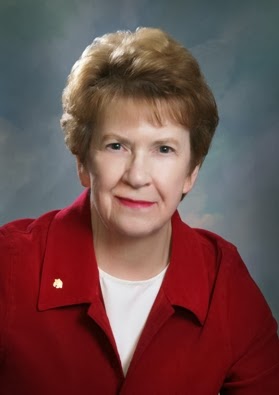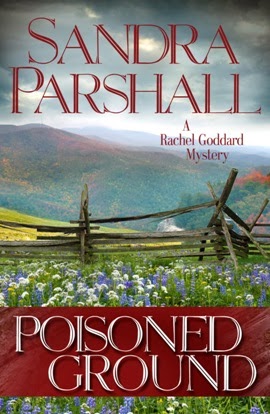I’ve done some awful things to Rachel Goddard over the course of six novels.
She’s been hypnotized and brainwashed, shot and shot at, held at gunpoint several times, tied up, locked in a cupboard, and beaten. She’s crawled deep into a low, narrow cave, and she’s barely escaped with her life from a house filled with gas.
Some writers think of their characters as their children, but if Rachel were my daughter, would I let those things happen to her? Absolutely not.
I think of Rachel as a friend. But do I want a friend to endure such horrors? Well… If she’d let me write about it afterward, maybe so. And that’s the arrangement Rachel and I have. She gets to have experiences I would never dream of exposing myself to, and I get to write about them.
Readers often ask authors how much they have in common with their characters and whether their fictional people are idealized versions of themselves. I do share a few things with Rachel — a love of animals, a hatred of injustice, intolerance of anyone who harms the weak and helpless — but she’s younger, much better looking, and smarter than I am. She has a lot more courage than I do and less fear of the consequences when she jumps into a sticky situation. Rachel isn’t me, not even an idealized version. She’s her own person, and has become a more distinct individual with every book.
When I started writing about her in The Heat of the Moon, Rachel was a frightened young woman who didn’t understand her own emotions and memories, didn’t know the truth about her family, didn’t know who she could trust. She gained strength by fighting for the right to make her own choices and follow her own path. I’ve watched her become a confident, bold woman who knows what she wants out of life and can’t be intimidated.
Writers are constantly told — by editors and agents, by writing instructors, by critics — that our protagonists must “grow and change” if we want our books to be satisfying. Of course, we can all point to hugely successful characters who stay exactly the same from book to book, but on the whole that advice is sound. If we want our characters to become real people on the page, we have to let them progress in a normal way and allow their lives to change as everyone’s life does. For me, that has been the greatest pleasure of writing a series: putting Rachel through a new ordeal in each book and seeing her come out stronger and more mature at the end. I left her suspended in a terrible place at the end of the first book, and although I didn’t originally intend The Heat of the Moon to be the start of a series, I’m glad I’ve been able to continue writing about Rachel and have seen her achieve some of the happiness and peace she deserves.
The girl in The Heat of the Moon could never have stood up to greedy developers the way the woman in Poisoned Ground does. Years have passed, a lot has happened, and there’s a world of difference between the Rachel I began writing about and the Rachel who lives in the pages of my latest book.
She has become more than my creation, more than my “child” or my friend. She has become my heroine, in every sense of the word.
If you’d like to see what she’s up to in the new book, leave a comment and you’ll have a chance to win a signed hardcover of Poisoned Ground. Giveaway for U.S. Residents only.
~~~~~~~~~~~~~~~~~~~~~~~~~
Sandra Parshall won an Agatha Award for her first Rachel Goddard novel, The Heat of the Moon. The sixth book in the series, Poisoned Ground, comes out March 4 from Poisoned Pen Press. Sandra is a past member of the national board of Sisters in Crime and remains active in the organization. An avid animal lover and amateur photographer, she lives in Northern Virginia with her husband and two cats.
Learn more about Sandra and her novels at her website. You can also find her on Facebook.
Sandra, thanks so much for being my guest today. I hope you come back and visit us often.







Don’t enter me in the contest, but I love this series and having read all the books in the series, I’ve seen Rachel grow to a much stronger person.
I’d love to check out Poisoned Ground. I really enjoy seeing how characters develop through a series.
I didn’t intend my first book to be a series but I realized I couldn’t let my MC grow the way I wanted her to in the confines of that one story, so there had to be more.
I, too, get upset when animals are harmed or killed even when they are characters in a book. I’ve stopped reading a book because of that! I would love to read this book! Thank you!
Sandra, I enjoyed Rachel from her first introduction and love the way she’s grown. I look forward to seeing what you’ve done to her in the newest release.
Sandra, I have read the other Rachel books, enjoying them all. Rachel is a great character. I love to read books about strong women, who have careers different from mine, live in places other than where I live, and have adventures that I never had or will have. Looking forward to reading Poisoned Ground.
Margaret Franson
I try not to harm animals, but Rachel has rescued a few from bad situations.
Whatever you do to adult characters doesn’t bother me, but please, no harm to animals. ;-))
Thanks for inviting me today, Patricia.
As I said, I didn’t intend to write a series about Rachel, but I’m glad I’ve had the chance to spend so much time with her and watch her develop to the point where she has found peace and happiness. Rosemarie, instead of changing in a negative way, I think Rachel has become a stronger and healthier person. If you read the first book, The Heat of the Moon, I think you’ll agree that she’s come a long way and it’s all good.
Sandra, in my first novel(still in draft) I was surprised at the end that my main character evolved, so it makes sense that a character would grow from one book in a series to the next. The only negative part of it is when that growth takes the fun out of them. I really dislike characters who, after the 5 or 6 book, are cynical or more skiddish because of prior experiences. Yes, I know that may be what a real person does, but would a reader really like that character anymore? So change for change sake is not always good IMO. Just my 2 cents.
My life changes between the time I pick up the first book in the series and fourth or sixth or tenth…so why shouldn’t the heroine? I’m looking forward to reading Rachel’s evolution.
Sandra: Nice to hear/see the changes in Rachel. My MC in my first novel (still draft) do things I couldn’t imagine doing. Seems we’ve made it through okay. Best wishes for your latest release.
Pat: As always, you’ve “rocked it” again with another great guest. Thanks.
Pat – Thanks for hosting Sandra.
Sandra – Thanks for sharing what you’ve learned about letting characters grow and change over the course of a series. I think that that kind growth helps a character seem more real.
I didn’t intend for my books to be a series either. Funny how that happens, isn’t it?
Growth is important. Maybe James Bond can stay the same, but real people grow and change.
Good luck with your new release, Sandra!